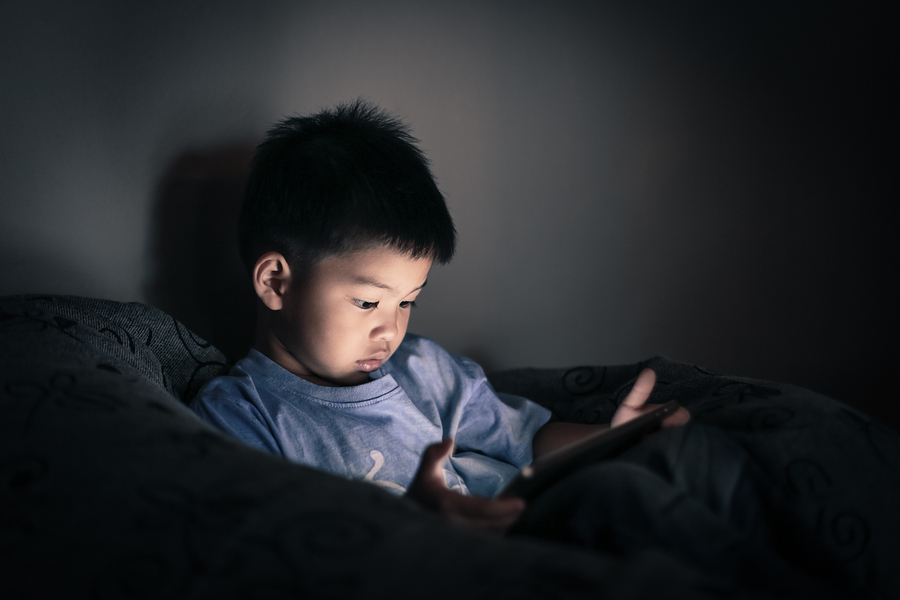 We live in a technological world, full of different “screens” we look at on an everyday basis. From our childhood and throughout our adolescence and adulthood, we are exposed to them. However, not that often we question ourselves about the impact they have on us. In the matter of fact, we are often fascinated with the fact that children now can so early use different devices, such as phones and tablets. But we often fail to explore this fascination further and ask ourselves what this really means when it comes to the development of children.
We live in a technological world, full of different “screens” we look at on an everyday basis. From our childhood and throughout our adolescence and adulthood, we are exposed to them. However, not that often we question ourselves about the impact they have on us. In the matter of fact, we are often fascinated with the fact that children now can so early use different devices, such as phones and tablets. But we often fail to explore this fascination further and ask ourselves what this really means when it comes to the development of children.
Early Development
During early childhood, children need to research the world around them through different sensory and motoric experiences in order to develop their brain. Accordingly, in order to reach their brain development potential, they need to engage all their senses regularly. This helps them create various connections in their brain and helps them achieve their cognitive, emotional, and behavioural potential. The children’s brain grows as they see, feel, taste, smell and hear. Each time children use one of their senses, a neural connection is made in their brain. New experiences repeated many times help make new connections, which shape the way children think, feel, behave and learn.
Without engaging all their senses regularly, children do not learn and develop the ability to cope with everyday challenges and events. More specifically, they do not learn and develop their ability to adequately communicate with their environment and other individuals around them, nor gain functional knowledge and skills that assure normal cognitive, emotional and beahavioural development. Consequently, they may experience a number of delays that can follow them throughout their development, through their adolescence and adulthood.
The Zero to Three Movement
According to some psychologists, the first three years of life seem to be the most critical period of children’s brain development, and the deprivation over those years may result in persistent deficits in psychological, as well as physical well-being. During those years, children develop from being almost entirely dependent new-borns to independent, communicating individuals who can dance, sing, and tell stories. This is facilitated by children’s exposure to different sensory and motor experiences.
Between conception and age three, children brains undergo an impressive amount of change. At birth, they already have about all of the neurons it will ever have. They double in size in the first year, and by age three they have reached 80 percent of its adult volume. The excess of synapses produced by children’s brains in the first three years makes the brain especially responsive to external input. During this period, the brain can “capture” experience more efficiently than it will be able to later when the pruning of synapses is underway. The brain’s ability to shape itself – called plasticity – lets humans adapt more readily and more quickly than we could if genes alone determined our wiring. The process of blooming and pruning, far from being wasteful, is actually an efficient way for the brain to achieve optimal development. However, for children’s brain to have an opportunity to do so, needs to be exposed to different sensory and motoric stimuli.
Negative Impacts of Screenism
Negative impacts of “screens” on children’s development are many. The following is a brief overview of findings of some studies that further explored these effects. More specifically, an overview of findings of studies focused on exploring various cognitive, language, physical, and social-emotional delays children excessively exposed to “screens” and limited in their sensory and motor experiences have.
One study (Tomopoulos et al., 2011) has shown that screen time for children 6 months of age is associated with less cognitive development by 14 months; babies that had 60 minutes of digital media exposure by 6 months of age, scored roughly one-third lower on tests of their cognitive and language skills 8 months later .
Another study ( Lin et al., 2015) has supported the above-noted finding, linking early screen time to increased risk of delayed cognitive development at age 2 years, across parental income and education levels. The study has shown that this is in part because babies as old as 15 months aren’t cognitively able to transfer knowledge picked up from a 2-D screen to their 3-D lives; the more time they spend watching screens, even if it’s ‘educational’ content, the less time they spend gathering knowledge from experiences in the real world.
In regard to language development, studies have shown each hour of viewing baby-aimed videos by babies is associated with a decrease in language development. In fact, two hours or more of screen time a day for babies under 12 months made them six times more likely to have a language delay later (Zimmerman, Christakis, and Meltzoff, 2015).
Negative impacts on language development were found not only to be directly associated with viewing the digital content. Even when “screens” were available in the background, they were still found to inhibit language development. Hence, it seems that the negative impacts on the language development were less rooted less in what is happening (the screen time) and more in what isn’t once the iPad or TV switches on parent-child interaction, which is how babies and toddlers pick up language.
Prolonged exposure to screens impacts physical development too. Studies have shown that increase in exposure to “screens” is associated with the increase in the number of children with myopia, as well as other physical concerns, such as obesity.
Studies have shown that young children struggle to transfer the lessons of the screen (assuming there are any) to real-world understanding. Consequently, critical social and emotional development often doesn’t happen, at least not in the amount needed; the time for the parent-child interaction and free play that teach these skills is spent in front of a screen. This often leads to all sorts of social and emotional issues that parents probably only recognize as bad behavior (Nathanson et al., 2014).
How to Address it?
Too much exposure to “screens” for children isn’t life-threatening, however, there are many negative impacts it has. Hence, it is very important to appropriately address it.
The most important thing in appropriately addressing “screenism” is revising and adjusting our parenting skills to the technological world we live in. However, this is also difficult given that we ourselves may fall into the trap of “sreenism” and struggle to get away from it. In order to avoid is it is recommended that we all follow some rather simple rules. For children younger than 2 years, evidence for benefits of media is still limited, adult interaction with the child during media use is crucial, and there continues to be evidence of harm from excessive digital media use. Adjusting our parenting according to the above-noted simple guidelines we can ensure that our children are given an opportunity to achieve their developmental potential.
Tomopoulos, S., Dreyer, B.P., Berkule, S., Fierman, A., Brockmeyer, C., and Mendelsohn, A. (2011). Infant Media Exposure and Toddler Development. Aech Pediatr Adolesc Med, 164 (12), 1105-1111.
Lin, L.Y.., Cherng, R.J, Chen, YJ, and Yang, H.M. (2015). Effects of television exposure on developmental skills among young children. Infant Behavi Dev, 38 (6), 20-26.
Zimmerman, F.J., Christakis, D.A., and Meltzof, A.N. (2007). Associations between media viewing and language development in children under age 2 years. J Pediatr, 151(4): 364-368.
NAthanson, A.L., Alade, F., Sharp, M.L., Rasmussen, E.E., and Christy, K. ( 2014). The relation between television exposure and executive function among preschoolers. Dev Psychol, 50(5), 1497-1506.
About the Author

Hilda Huj
, B.A., M.A. Hilda is a registered clinical counselling and forensic psychologist in Edmonton, Alberta. She specializes in working with youth, adults and families that have been impacted by trauma. She completed a Bachelor of Arts and Master of Arts degree in Psychology in Osijek, Croatia, and subsequently equated her academic credentials to Canadian standards. Currently, she volunteers with the Edmonton Police Services as a Victim Support Worker and also helps to promote Psychology by volunteering for the Psychologists’ Association of Alberta.
Office Location:
Suite 39, 9912 - 106 Street
Edmonton, Alberta
T5K 1C5
Canada
Phone: 7804289223
Contact Hilda Huj
Professional Website:
www.archpsychological.com